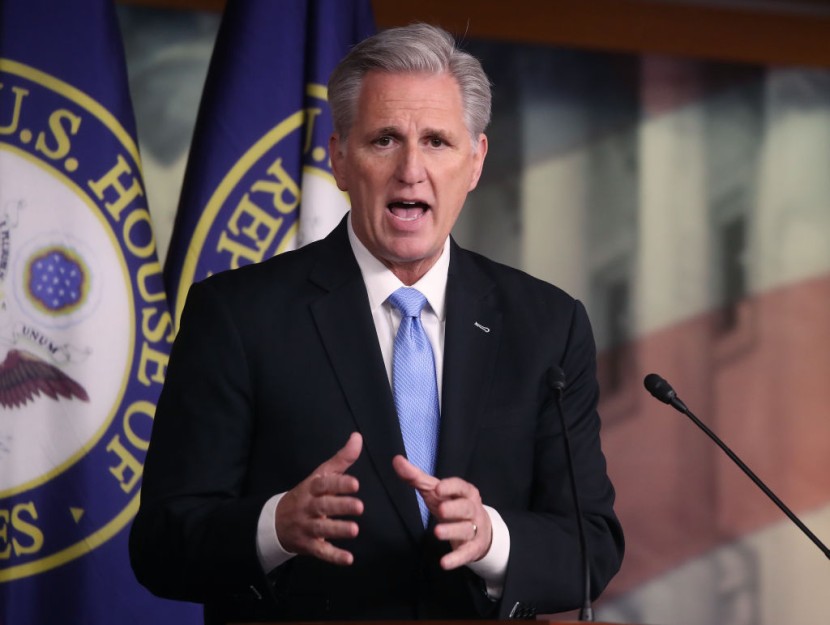
Rep. Kevin McCarthy has failed to secure enough votes from the GOP to become the speaker of the House of Representatives for the tenth round of balloting, marking the longest speaker content in generations.
Republican lawmakers have already nominated Reps. Byron Donalds and Kevin Hern as alternatives to the party leader in an attempt to break the deadlock. On the other hand, the Democratic Party has banded together to vote for their representative, Hakeem Jeffries.
Does the Speaker of the House Have To Be From the Majority Party?
The situation has raised tensions due to lawmakers being unable to be sworn in and perform their duties until a speaker is appointed. Now, many are questioning if the speaker should need to come from the majority party.
Legally, lawmakers can appoint anybody to become the speaker as long as they are nominated and receive a majority of votes from House members. The situation comes as the House of Representatives met on Jan. 4 for a second day to cast votes to determine who would be the speaker, as per Fox61.
McCarthy needs to secure 218 votes in order to be appointed as the speaker and has come up short time and time again. Under the Constitution, there is no specific text that requires the speaker to come from the party that currently holds majority control of the House.
The United States Government Publishing Office (GPO) said that the speaker is the only House officer who "traditionally has been chosen from the sitting membership of the House." The agency added that the Constitution does not limit the selection from among the class but noted that the practice has been invariably followed.
The situation where a House speaker has not been decided on in the first round of balloting is the first time in the last 100 years. It comes as the day before, on January 3, several House freshmen, including Rep.-elect George Santos, falsely claimed that they have been sworn into the 118th Congress.
Read Also : Byron Donalds Emerges as Alternative to Kevin McCarthy as House Speaker Amid Chaos Among Republicans
Alternatives to McCarthy
According to King5, members of the House cannot be sworn in until a speaker has been appointed after securing enough votes from other members. Typically, on the opening day of a new Congress, the House follows a "well-established routine" of electing a House speaker, swearing in members, electing and swearing in administrative officers, and adopting rules of procedure and various administrative resolutions.
Now, negotiators between McCarthy's allies and opponents are pushing for an agreement tonight in an attempt to show progress in deciding who will become the House speaker. The lawmakers believe that they have made significant progress but are still discussing some details.
What makes matters more concerning is that at least four Republican members are scheduled to leave town on Friday because of various family issues. With this, many are hoping that lawmakers will strike a deal and adjourn in the next 24 hours and come back on Monday.
When Donalds was nominated, Rep. Anna Paulina Luna praised the lawmaker, saying that he has done what others should follow. On the other hand, Rep. Lauren Boebert was the one who threw Hern's name into the voting ring, calling him a "true leader" who can unify the conference, CNN reported.
Related Article : US House Fails To Elect New Speaker as Republicans Refused To Support McCarthy's Bid
© 2026 HNGN, All rights reserved. Do not reproduce without permission.








